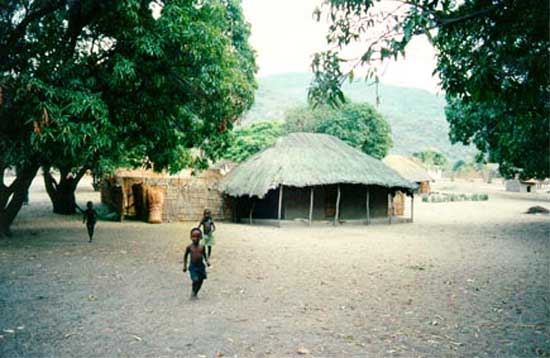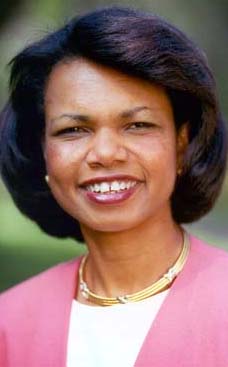2006.03.21: March 21, 2006: Headlines: COS - Malawi: Service: Anchorage Daily News: RPCV Tom Nighswander says: Actions prove halfway 'round the world isn't really that far
Peace Corps Online:
Directory:
Malawi:
Peace Corps Malawi :
The Peace Corps in Malawi:
2006.03.07: March 7, 2006: Headlines: COS - Malawi: Service: Return to our COS - Malawi: Anchorage Daily News: RPCVs Dr. Tom Nighswander and his wife Ruth return to Malawi to work at Malawi Children's Village, a home for orphans whose parents have died from AIDS :
2006.03.21: March 21, 2006: Headlines: COS - Malawi: Service: Anchorage Daily News: RPCV Tom Nighswander says: Actions prove halfway 'round the world isn't really that far
RPCV Tom Nighswander says: Actions prove halfway 'round the world isn't really that far

This is one of the friendliest places you will every visit. You are greeted warmly, and smiles are enthusiastically returned. This continues today in spite of a 20 to 30 percent HIV infection rate in the population and an estimated three quarters of a million HIV/AIDS orphans in a country populated by 12 million people.
RPCV Tom Nighswander says: Actions prove halfway 'round the world isn't really that far
Actions prove halfway 'round the world isn't really that far
MALAWI JOURNAL
By TOM NIGHSWANDER
Daily News correspondent
Published: March 21, 2006
Last Modified: March 21, 2006 at 01:37 AM
Editor's note: This is the third of four columns provided by Dr. Tom Nighswander of Anchorage, detailing work at the Malawi Children's Village, a home for orphans whose parents have died from AIDS. Nighswander and his wife, Ruth, were Peace Corps volunteers in Malawi in the '60s.
MANGOCHI, Malawi --As I write this, Anchorage is under my feet. Get a globe, put one finger on Alaska and the other on the opposite side, and you are just about pointing to Malawi.
Malawi is familiar to many in Anchorage, especially the 20 or so volunteers from Anchorage who have visited Malawi to work at the Malawi Children's Village.
This is one of the friendliest places you will every visit. You are greeted warmly, and smiles are enthusiastically returned. This continues today in spite of a 20 to 30 percent HIV infection rate in the population and an estimated three quarters of a million HIV/AIDS orphans in a country populated by 12 million people.
Growing up without parents is the pits anywhere. In Malawi, it is a matter of life and death. In subsistence cultures, if there is no one to tend the maize, catch the fish or gather thatch to repair the roof of your mud-wall house, your life collapses. And so it has been for too many Malawi children. Here there is no safety net, except for your extended family. Unfortunately many of the able-bodied in the extended family also have succumbed to AIDS.
It has been left to the grandparents and villagers who have volunteered as guardians to care for those orphaned. It is not an easy task ... another mouth to feed, a child to clothe and an extra mat for sleeping on an already crowded dirt floor, plus school fees to pay for anyone eligible for secondary school.
Enter the Malawi Children's Village, a Malawian-run, home-based HIV/AIDS orphan program that serves a population of 30,000 in 37 villages of the Yao tribe at the southern tip of Lake Malawi. It was conceived in 1997 by an inspired Malawian and a former Peace Corps volunteer who was stationed in the area in the '60s. It receives no government funding or funding from any donor agency. Its support comes from returned Malawi Peace Corps volunteers, Rotary clubs in the United States and other friends of Malawi -- many who live in Alaska. In truth, it is a community development program whose focus is the 2,400 orphans in the area.
At home we say it takes a village to raise a child. It is not a metaphor here. It means food to eat, clothes to wear, a roof to sleep under, a school to go to, a safe and supportive environment to live in. This is what the children's village is about. Seventy-four Malawian volunteers in nearby villages monitor the well-being of the orphans in the villages. If you care for orphans, your family gets supplemental food, the children receive clothes, your house is repaired and school fees are paid.
Wilford Piyo is 78, lives in the nearby village and is feeding 10 children. He also cooks for us each evening. His is the usual story. His daughter died last November at age 37. Her husband died in May 2001. They left behind six children, now orphans. They were both victims of AIDS.
The father of the children was a member of the Malawi Army. Men in both the Malawi Army and the police move around the country and are away from home for some length of time. They are at high risk for becoming AIDS positive, because here almost all transmission of the virus is through heterosexual sex. AIDS is so rampant in both the army and police that both are chronically short of men in the 19- to 35-year-old age group.
Wilford, well past retirement age and still with a sharp mind, has a stooped gate and slow, steady walk. He must continue to work. Originally he had an assortment of four children he was providing for; two months ago the number swelled by six. Now, because of the children's village project, he will receive housing assistance, clothes, supplemental food and maize seed for the essential gardens that everyone must have. In addition, the children will sleep under a bed net to protect them from malaria-transmitting mosquitoes. (Bed nets have the potential to reduce by half the 20 percent under-5 death rate.) Plus, he will receive school fees for his two grandchildren who are eligible for secondary school.
The physical headquarters of the children's village is an active center. It contains a residential nutritional nursery for orphan infants and those younger than age 3, experimental gardens, three in-production fish ponds, vocational training school (for carpentry, tailoring, auto/diesel mechanics, soon expanding to include brick-laying and plumbing) and the first year of a secondary school that is expanding to four years, a library, and studio for singing and video production.
Both the vocational school and a significant part of the secondary school have been built by donations from Anchorage. The Downtown Rotary just contributed $13,000 for a backup diesel generator to run the compound during the frequent power outages.
That is not all. Four Anchorage schools have adopted four of the seven primary schools in the children's village area. They've not only collected money for each school's self-identified priority needs (pit latrines) but have set up letter exchanges. St. Mary's Episcopal Church has become a sister church to the nine Anglican village churches in the parish that covers the children's village project. (Malawi was a former British colony). Several Anchorage Presbyterians and Catholic churches are seeking partner churches here now.
As anyone from home who has been here can attest, the Malawians are almost embarrassingly appreciative of this support. We all have been prayed for, blessed by Allah by the Muslims, given small gifts and always bring home dozens of letters written to their Anchorage friends.
To the Anchorage community we have been asked to say to you "Zikomo Kwambili" (Thank you very much).
Next: Buying our first goat, and saying goodbye.
Tom and Ruth Nighswander have lived in Anchorage for 34 years. They were Peace Corps volunteers in Malawi in the '60s and took a sabbatical year in Malawi in 1984-85. They have been returning annually for the past six years.
When this story was posted in March 2006, this was on the front page of PCOL:





Peace Corps Online The Independent News Forum serving Returned Peace Corps Volunteers
 | History of the Peace Corps
PCOL is proud to announce that Phase One of the "History of the Peace Corps" is now available online. This installment includes over 5,000 pages of primary source documents from the archives of the Peace Corps including every issue of "Peace Corps News," "Peace Corps Times," "Peace Corps Volunteer," "Action Update," and every annual report of the Peace Corps to Congress since 1961. "Ask Not" is an ongoing project. Read how you can help. |
 | The Peace Corps Library
The Peace Corps Library is now available online with over 40,000 index entries in 500 categories. Looking for a Returned Volunteer? Check our RPCV Directory. New: Sign up to receive PCOL Magazine, our free Monthly Magazine by email. Like to keep up with Peace Corps news as it happens? Sign up to recieve a daily summary of Peace Corps stories from around the world. |
 | Peace Corps suspends program in Bangladesh
Peace Corps Director Gaddi H. Vasquez announced the suspension of the Peace Corps program in Bangladesh on March 15. The safety and security of volunteers is the number one priority of the Peace Corps. Therefore, all Peace Corps volunteers serving in Bangladesh have safely left the country. More than 280 Peace Corps volunteers have served in Bangladesh since the program opened in November 1998. Latest: What other newspapers say. |
 | Invitee re-assigned after inflammatory remarks
The Peace Corps has pulled the invitation to Derek Volkart to join the Morocco Training Program and offered him a position in the Pacific instead after officials read an article in which he stated that his decision to join the Peace Corps was in "response to our current fascist government." RPCV Lew Nash says that "If Derek Volkart spoke his mind as freely in Morocco about the Moroccan monarchy it could cause major problems for himself and other Peace Corps volunteers." Latest: The Ashland Daily Tidings has issued a request for all Peace Corps communications on the case. |
 | Re-envision Peace Corps
Nicholas J. Slabbert says in his article in the Harvard International Review that an imaginatively reinvented Peace Corps could powerfully promote US interests in a period when perceptions of American motives are increasingly relevant to global realignment. His study envisions a new role for the Peace Corps in five linked areas: (1) reinventing America's international profile via a new use of soft power; (2) moving from a war-defined, non-technological, reactive theory of peace to a theory of peace as a normal, proactive component of technologically advanced democracy; (3) reappraising Peace Corps as a national strategic asset whose value remains largely untapped; (4) Peace Corps as a model for the technological reinvention of government agencies for the 21st century; (5) redefining civil society as information technology society. Read the article and leave your comments. |
 | March 1, 1961: Keeping Kennedy's Promise
On March 1, 1961, President John F. Kennedy issues Executive Order #10924, establishing the Peace Corps as a new agency: "Life in the Peace Corps will not be easy. There will be no salary and allowances will be at a level sufficient only to maintain health and meet basic needs. Men and women will be expected to work and live alongside the nationals of the country in which they are stationed--doing the same work, eating the same food, talking the same language. But if the life will not be easy, it will be rich and satisfying. For every young American who participates in the Peace Corps--who works in a foreign land--will know that he or she is sharing in the great common task of bringing to man that decent way of life which is the foundation of freedom and a condition of peace. " |
 | Paid Vacations in the Third World?
Retired diplomat Peter Rice has written a letter to the Wall Street Journal stating that Peace Corps "is really just a U.S. government program for paid vacations in the Third World." Director Vasquez has responded that "the small stipend volunteers receive during their two years of service is more than returned in the understanding fostered in communities throughout the world and here at home." What do RPCVs think? |
 | RPCV admits to abuse while in Peace Corps
Timothy Ronald Obert has pleaded guilty to sexually abusing a minor in Costa Rica while serving there as a Peace Corps volunteer. "The Peace Corps has a zero tolerance policy for misconduct that violates the law or standards of conduct established by the Peace Corps," said Peace Corps Director Gaddi H. Vasquez. Could inadequate screening have been partly to blame? Mr. Obert's resume, which he had submitted to the Peace Corps in support of his application to become a Peace Corps Volunteer, showed that he had repeatedly sought and obtained positions working with underprivileged children. Read what RPCVs have to say about this case. |
 | Why blurring the lines puts PCVs in danger
When the National Call to Service legislation was amended to include Peace Corps in December of 2002, this country had not yet invaded Iraq and was not in prolonged military engagement in the Middle East, as it is now. Read the story of how one volunteer spent three years in captivity from 1976 to 1980 as the hostage of a insurrection group in Colombia in Joanne Marie Roll's op-ed on why this legislation may put soldier/PCVs in the same kind of danger. Latest: Read the ongoing dialog on the subject. |
 | Friends of the Peace Corps 170,000 strong
170,000 is a very special number for the RPCV community - it's the number of Volunteers who have served in the Peace Corps since 1961. It's also a number that is very special to us because March is the first month since our founding in January, 2001 that our readership has exceeded 170,000. And while we know that not everyone who comes to this site is an RPCV, they are all "Friends of the Peace Corps." Thanks everybody for making PCOL your source of news for the Returned Volunteer community. |
Read the stories and leave your comments.

Some postings on Peace Corps Online are provided to the individual members of this group without permission of the copyright owner for the non-profit purposes of criticism, comment, education, scholarship, and research under the "Fair Use" provisions of U.S. Government copyright laws and they may not be distributed further without permission of the copyright owner. Peace Corps Online does not vouch for the accuracy of the content of the postings, which is the sole responsibility of the copyright holder.
Story Source: Anchorage Daily News
This story has been posted in the following forums: : Headlines; COS - Malawi; Service
PCOL32210
29


















